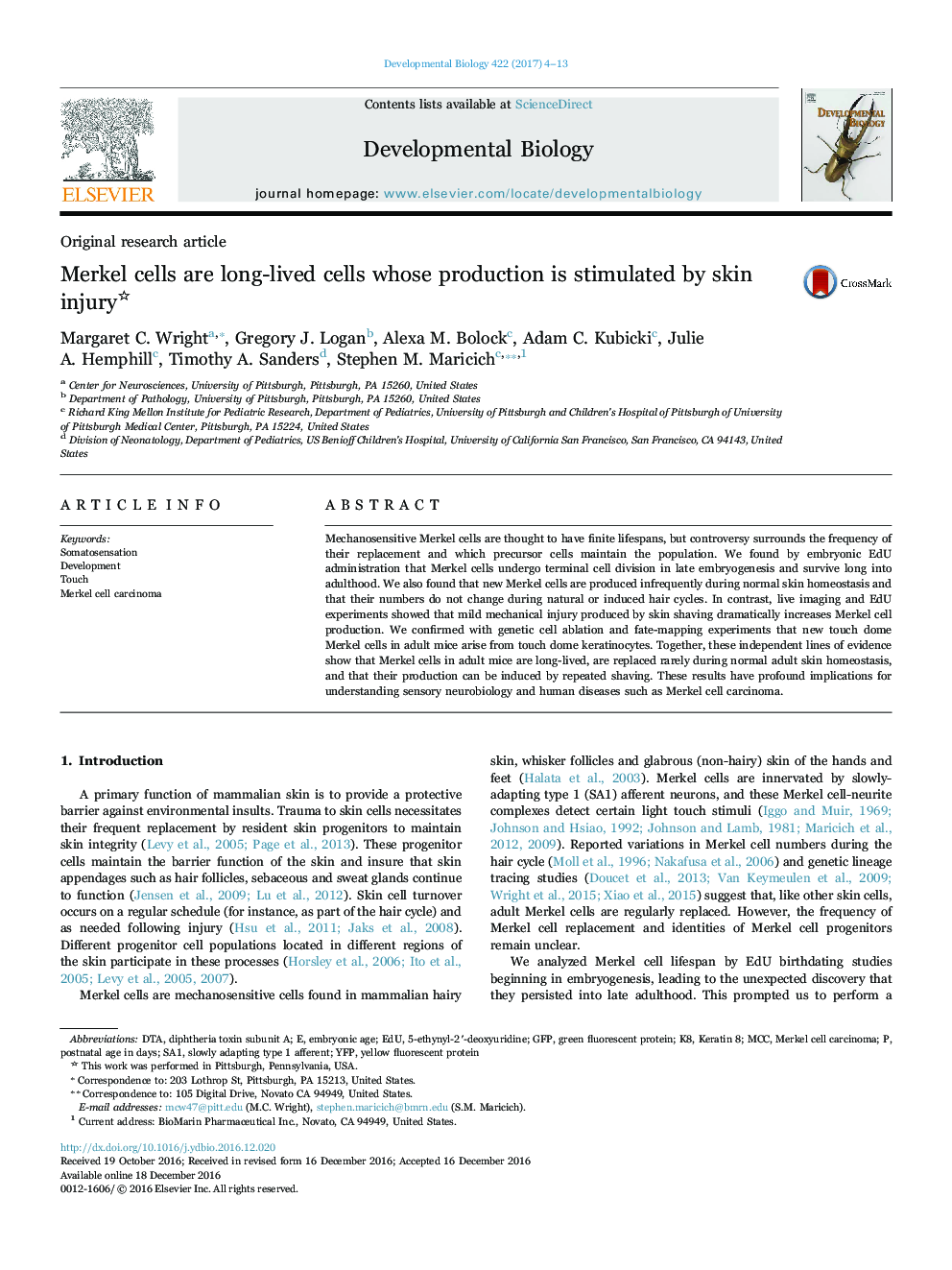| Article ID | Journal | Published Year | Pages | File Type |
|---|---|---|---|---|
| 5531956 | Developmental Biology | 2017 | 10 Pages |
â¢Embryonic Merkel cells persist long into adulthood.â¢Average Merkel cell number does not change with the hair cycle.â¢Few Merkel cells are generated in adulthood.â¢Skin shaving induces Merkel cell production.â¢Merkel cells likely arise from proliferation of Gli1+ progenitors.
Mechanosensitive Merkel cells are thought to have finite lifespans, but controversy surrounds the frequency of their replacement and which precursor cells maintain the population. We found by embryonic EdU administration that Merkel cells undergo terminal cell division in late embryogenesis and survive long into adulthood. We also found that new Merkel cells are produced infrequently during normal skin homeostasis and that their numbers do not change during natural or induced hair cycles. In contrast, live imaging and EdU experiments showed that mild mechanical injury produced by skin shaving dramatically increases Merkel cell production. We confirmed with genetic cell ablation and fate-mapping experiments that new touch dome Merkel cells in adult mice arise from touch dome keratinocytes. Together, these independent lines of evidence show that Merkel cells in adult mice are long-lived, are replaced rarely during normal adult skin homeostasis, and that their production can be induced by repeated shaving. These results have profound implications for understanding sensory neurobiology and human diseases such as Merkel cell carcinoma.
